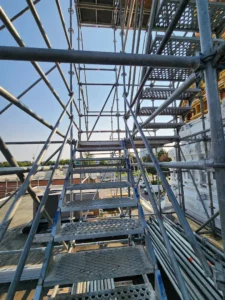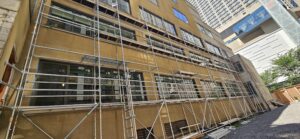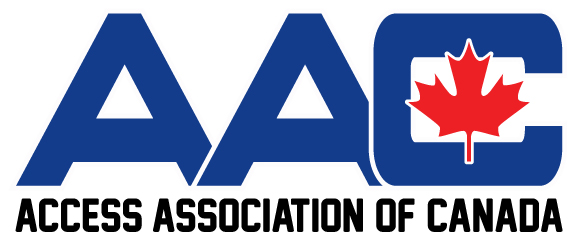Introduction
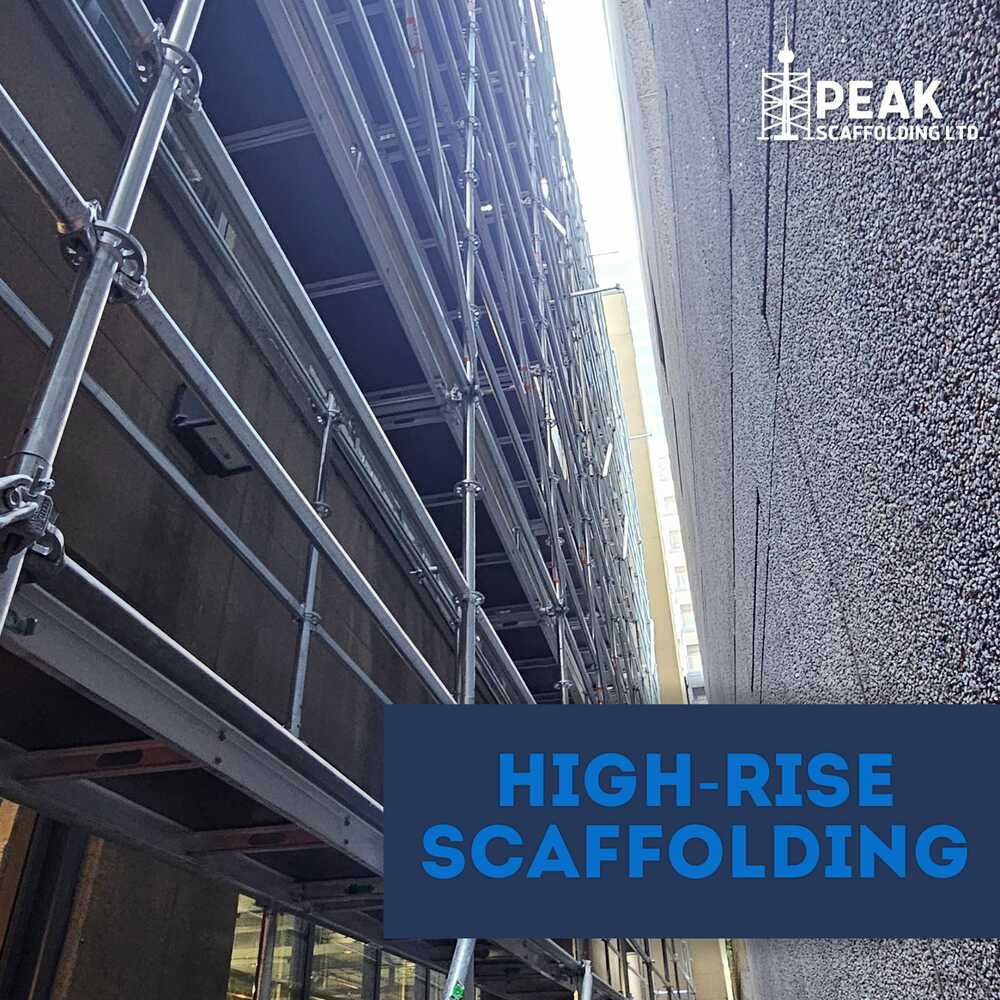
Toronto’s skyline is a testament to its thriving construction industry. Cranes swing, cement mixers churn, and towering scaffolds rise, supporting the ambitious projects that shape our city. In this diverse city, where workers operate at dizzying heights, scaffolding plays an essential role. It provides access, stability, and a platform for countless tasks. But with that height comes inherent risk.
Scaffolding inspections are the unsung heroes of construction safety. They are not merely a checkbox on a compliance list; they are the critical line of defence against accidents, injuries, and even fatalities. In a city with stringent safety regulations like Toronto, these inspections are not just recommended – they are mandatory. This article will delve into why scaffolding inspections matter, what they entail, and how you can ensure your Toronto job site remains safe and compliant.
Why Scaffolding Inspections Matter: Beyond Compliance
Scaffolding inspections are far more than a bureaucratic requirement. They are a multi-faceted safeguard that protects workers, projects, and reputations. Let’s break down the key reasons why they are so crucial:
- Safety First and Foremost: This is the most obvious and compelling reason. Scaffolding collapses, falls from height, and falling objects are serious hazards on construction sites. Thorough inspections identify potential weaknesses in the structure, ensuring it can withstand the stresses of daily use and Toronto’s unpredictable weather. A safe scaffold is a secure workplace, reducing the risk of life-altering accidents.
- Protecting Your Workforce: A safe work environment isn’t just about preventing accidents; it’s about fostering a positive and productive atmosphere. When workers know their safety is a top priority, morale improves, and they can focus on their tasks without fear. This leads to increased productivity, fewer delays, and a more successful project overall.
- Legal Compliance: Toronto has specific regulations governing scaffolding use and inspections. Failure to comply can result in hefty fines, stop-work orders, and even legal action. Regular inspections demonstrate your commitment to adhering to the law, and protecting your company from costly penalties.
- Insurance and Liability: In the unfortunate event of an accident, a documented history of thorough scaffolding inspections can be invaluable. It demonstrates due diligence on your part and can help mitigate liability claims, potentially saving your company from significant financial losses.
- Reputation and Trust: A strong safety record is a powerful asset in the construction industry. When clients and partners know you prioritize safety, it builds trust and confidence in your ability to deliver projects on time and within budget. A reputation for safety can lead to more business opportunities and long-term success.
Regular scaffolding inspections are an investment in your project’s safety, your workers’ well-being, and your company’s future.
What to Look for in a Scaffolding Inspection: A Checklist for Safety
A scaffolding inspection is a precise process that leaves no room for guesswork. It’s a systematic evaluation that covers every aspect of the structure, ensuring it meets the highest safety standards. Here’s a comprehensive checklist of what to look for during a scaffolding inspection:
- Certified Inspector:
- The most crucial element is hiring a qualified inspector certified by reputable organizations like the Access Association of Canada (AAC). These professionals have the knowledge and experience to identify potential hazards that an untrained eye might miss.
- Regular Inspection Schedule:
- Toronto’s regulations typically require scaffolding inspections:
- Before each work shift
- After any event that could affect the structure’s integrity (e.g., high winds, heavy rain, or modifications)
- At regular intervals (weekly or monthly, depending on the project)
- Comprehensive Inspection Checklist:
- Structural Integrity:
- Are all braces, ties, and guardrails securely fastened?
- Are there any signs of damage, rust, or corrosion?
- Are the platforms level and free of debris?
- Stability and Foundation:
- Is the scaffolding properly anchored and stable on the ground?
- Are base plates and mudsills in good condition?
- Fall Protection Systems:
- Are guardrails of appropriate height and securely attached?
- Are toe boards present and properly installed?
- Is personal fall arrest equipment (e.g., harnesses, lanyards) available and in good condition?
- Access Points and Ladders:
- Are access ladders secure and in good repair?
- Are there adequate landings and platforms at different levels?
- Electrical Hazards:
- Is the scaffolding a safe distance from power lines?
- Are electrical cords and equipment properly grounded?
- Signage and Warnings:
- Are warning signs posted to indicate hazards and load limits?
- Are safety instructions clearly visible to workers?
- Thorough Documentation:
- A detailed inspection report should be prepared after each assessment. This report should include:
- The date and time of the inspection
- The name and qualifications of the inspector
- A description of the scaffolding system
- A list of any deficiencies or hazards identified
- Recommended corrective actions
- Photographs of any issues
By following this comprehensive checklist and adhering to a regular inspection schedule, you can significantly reduce the risk of accidents and ensure that your Toronto job site remains safe and productive. Remember, a small investment in scaffolding inspections can yield enormous returns in terms of worker safety and project success.
Common Scaffolding Hazards in Toronto
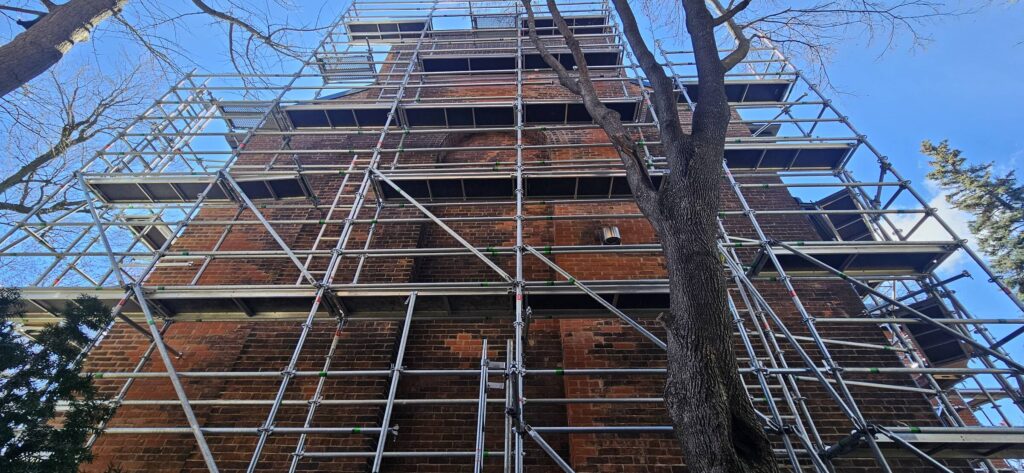
Toronto’s unique climate and construction landscape present specific challenges to scaffolding safety. Being aware of these hazards is the first step towards mitigating them:
- Weather Conditions:
- Rain and Ice: Wet or icy surfaces can make scaffolding slippery and unstable. Regular inspections are crucial after precipitation to ensure safe footing and prevent slips and falls.
- Wind: Toronto’s wind gusts can exert significant force on scaffolding, potentially causing it to sway or even collapse. Ensure wind bracing is in place and that scaffolding is designed to withstand local wind loads.
- Snow and Ice Accumulation: Heavy snow and ice buildup can add excessive weight to the structure. Regular clearing of snow and ice is essential to maintain stability.
- Temperature Fluctuations: Repeated freezing and thawing cycles can weaken metal components and connections. Inspections should check for signs of stress or damage caused by temperature changes.
- Overloading:
- Every scaffolding system has a maximum load capacity. Exceeding this limit can lead to structural failure. Ensure that workers are aware of load restrictions and that materials are distributed evenly.
- Improper Assembly:
- Incorrectly assembled scaffolding is a major safety risk. Components that are not properly connected, missing parts, or misaligned braces can compromise the entire structure. Always follow manufacturer instructions and use qualified installers.
- Lack of Maintenance:
- Rust, corrosion, and missing or damaged parts can weaken scaffolding over time. Regular maintenance, including cleaning, lubrication, and replacement of worn components, is essential to ensure ongoing safety.
- Inadequate Training:
- Workers must be trained in the proper use of scaffolding, including how to climb safely, identify hazards, and report any concerns. Regular refresher training is crucial to keep safety top of mind.
- Other Hazards:
- Electrical Hazards: Ensure proper grounding and safe distances from power lines.
- Falling Objects: Secure tools and materials to prevent them from falling and causing injuries.
- Unauthorized Modifications: Alterations to the scaffolding structure should only be made by qualified personnel.
By understanding and addressing these common hazards, you can create a safer and more secure work environment on your Toronto job site. Regular inspections and proactive measures can prevent accidents and ensure that your project progresses smoothly and safely.
Choosing a Scaffolding Service Provider in Toronto: Finding the Right Partner
Selecting the right scaffolding inspection service is a critical decision that can significantly impact your project’s safety and success. In a city like Toronto, with its specific regulations and unique construction challenges, it’s essential to find a partner who understands the local landscape and prioritizes your needs. Here’s a guide to help you make an informed choice:
- Experience and Expertise:
- Look for companies with a proven track record in Toronto’s construction industry. Experience working on similar projects demonstrates their ability to handle the specific challenges your site may present.
- Inquire about the qualifications and certifications of their inspectors. Are they certified by reputable organizations like the Access Association of Canada (AAC)? Do they have specialized training in scaffolding safety?
- Ask for references or case studies from past clients to gauge their performance and reputation.
- Comprehensive Services:
- Consider whether the company offers a range of services beyond inspections, such as scaffolding design, engineering, and rental. A one-stop shop can streamline your project and ensure seamless integration of all scaffolding-related aspects.
- Insurance Coverage:
- Verify that the inspection service carries liability insurance to protect you in case of accidents or claims arising from their work.
- Communication and Reporting:
- Choose a provider who communicates clearly and transparently. They should be able to explain their inspection process in detail and answer any questions you have.
- Ensure they provide detailed inspection reports that clearly identify any issues and recommend corrective actions. A well-documented inspection history can be invaluable for compliance and liability purposes.
- Client-Focused Approach:
- Select a company that values your time and understands your specific needs. They should be responsive to your inquiries, offer flexible scheduling, and work collaboratively with your team.
- Consider whether they offer additional support services, such as ongoing consultations or emergency inspections.
- Value and Cost-Effectiveness:
- While cost is a factor, it shouldn’t be the sole deciding factor. Prioritize quality, expertise, and a comprehensive approach to scaffolding safety over the lowest price.
- Get quotes from multiple providers to compare their services and pricing structures.
By carefully evaluating these factors, you can choose a scaffolding contractor in Toronto that aligns with your project goals and ensures the safety and well-being of your workers. Remember, a reputable inspection service is an investment in your project’s success.
PEAK Scaffolding: Your Toronto Scaffolding Experts
In the heart of Toronto’s bustling construction scene, PEAK Scaffolding stands as a beacon of safety, quality, and expertise. As an Indigenous-owned company, we take immense pride in serving our community and contributing to the city’s growth. Our commitment to excellence extends beyond simply erecting scaffolding; we strive to be your trusted partner, ensuring the success and safety of every project we undertake.
Safety is Our Foundation:
With over 40 years of combined experience in industrial and commercial scaffolding, our owners have instilled a deep-rooted safety culture within our team. We understand that every project, regardless of scale, demands unwavering attention to safety. Our commitment is evident in our rigorous training programs, adherence to stringent Canadian safety standards, and certifications from leading industry organizations like the Access Association of Canada (AAC) and the Canadian Standards Association (CSA). When you choose PEAK Scaffolding, you’re choosing a company that places the well-being of your team at the forefront of every decision.
Tailored Solutions
We recognize that every project in Toronto presents unique challenges and demands. That’s why we take a personalized approach, tailoring our scaffolding solutions to your specific needs. Our team of experts will work closely with you from the initial consultation to the final dismantling, ensuring that every aspect of your scaffolding system is optimized for safety, efficiency, and productivity.
Expertise and Innovation
At PEAK Scaffolding, we specialize in Ringlock and Tube & Clamp scaffolding systems, renowned for their versatility, strength, and adaptability. Our team is well-versed in the latest industry advancements and best practices, allowing us to deliver innovative solutions that meet the most demanding requirements. Whether you’re working on a complex commercial project or a challenging industrial site, we have the expertise and resources to provide the optimal scaffolding solution.
Partnering with PEAK Scaffolding
When you partner with PEAK Scaffolding, you’re not just hiring a scaffolding provider; you’re gaining a team of dedicated professionals who are invested in your project’s success. We offer a comprehensive range of services, including scaffolding design, engineering, rental, installation, inspection, and dismantling. Our goal is to provide a seamless and stress-free experience, allowing you to focus on what you do best – building Toronto’s future.
Ready to get started? Contact us today for a free quote or consultation. Let us show you why we’re Toronto’s trusted scaffolding experts.
Related Posts
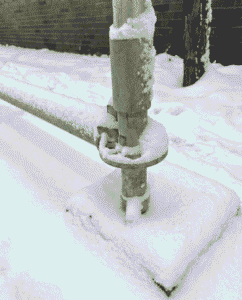
Why Snow Load Matters for Scaffold Safety
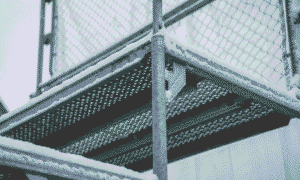
7 Essential Winter Scaffolding Safety Tips for 2026
